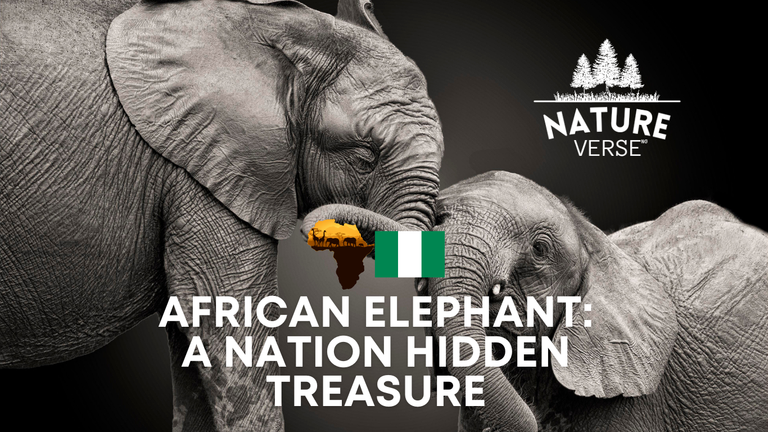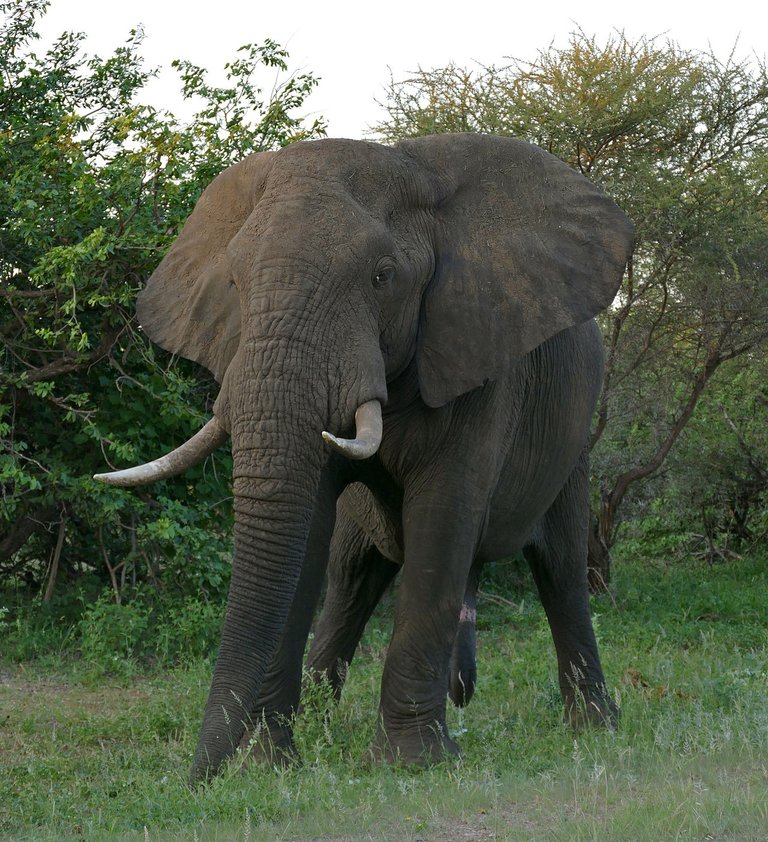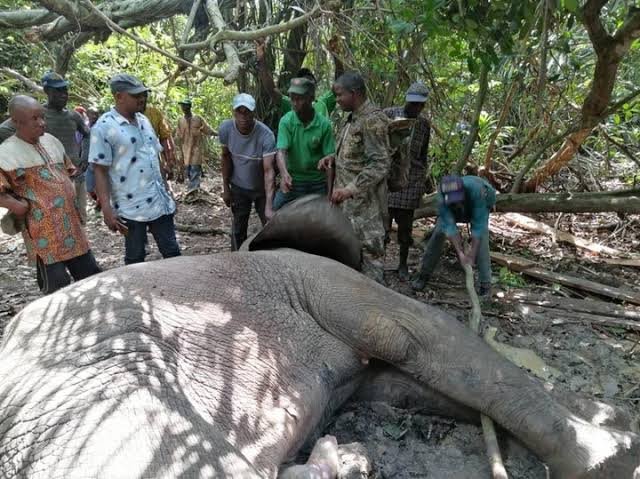
The African elephant, Loxodonta africana, is the largest land mammal on Earth and one of the most iconic symbols of the African continent. Known for their impressive size, intelligence, and complex social structures, these majestic creatures have long fascinated and inspired people worldwide.
African elephants are remarkable for their size and strength. Adult males are known as bulls. Elephant's distinctive feature is their large ears, which help regulate their body temperature in the hot African climate. Their long, curved tusks, made of ivory, are used for digging, stripping bark from trees, and as a formidable defense against predators.
Elephants communicate using a range of sounds, body language, and even seismic signals that can be detected through the ground. Their intelligence is reflected in their problem-solving abilities, memory, and capacity for emotion, including mourning for lost members.

Now to answer the questions you have in mind🤔.
In Nigeria, these elephants can be found in regions like the Yankari Game Reserve (Bauchi state), Omo Forest Reserve (Ogun state), Cross River National Park (Cross River state), and Andoni Island (Rivers state) among others. I currently have the opportunity to work as a volunteer with those in charge of the Andoni elephant sanctuary in Andoni LGA, Rivers State.
It is so sad that the population of these animals is reducing so fast, due to proper management and conservation.
Despite their importance, African elephants face severe threats that have led to a significant decline in their population. Poaching for ivory is one of the most pressing threats, driven by the high demand for ivory in international markets. This illegal trade has decimated elephant populations across Africa, with tens of thousands of elephants killed annually.

The image above shows an elephant killed in Omo forest reserve, Ogun state.
Habitat loss due to agricultural expansion, human settlement, and infrastructure development is one of the challenges faced by elephants. As their habitats shrink, elephants are forced into closer proximity with human communities, leading to increased human-wildlife conflict. This conflict often results in the killing of elephants as a form of retaliation or defense.
(Awareness for Conservation of Elephant)
Conservation efforts are underway to protect these majestic creatures, including anti-poaching patrols, habitat preservation, and community engagement programs that promote coexistence between humans and elephants. International bans on ivory trade, coupled with educational campaigns, aim to reduce demand and protect remaining elephant populations.

Protecting these magnificent creatures is not only essential for preserving biodiversity but also for maintaining the cultural and natural landscapes that have been shaped by their presence for millennia. Through concerted conservation efforts and global awareness, there is hope that future generations will continue to witness the majesty of the African elephant in the wild.
Posted Using InLeo Alpha
